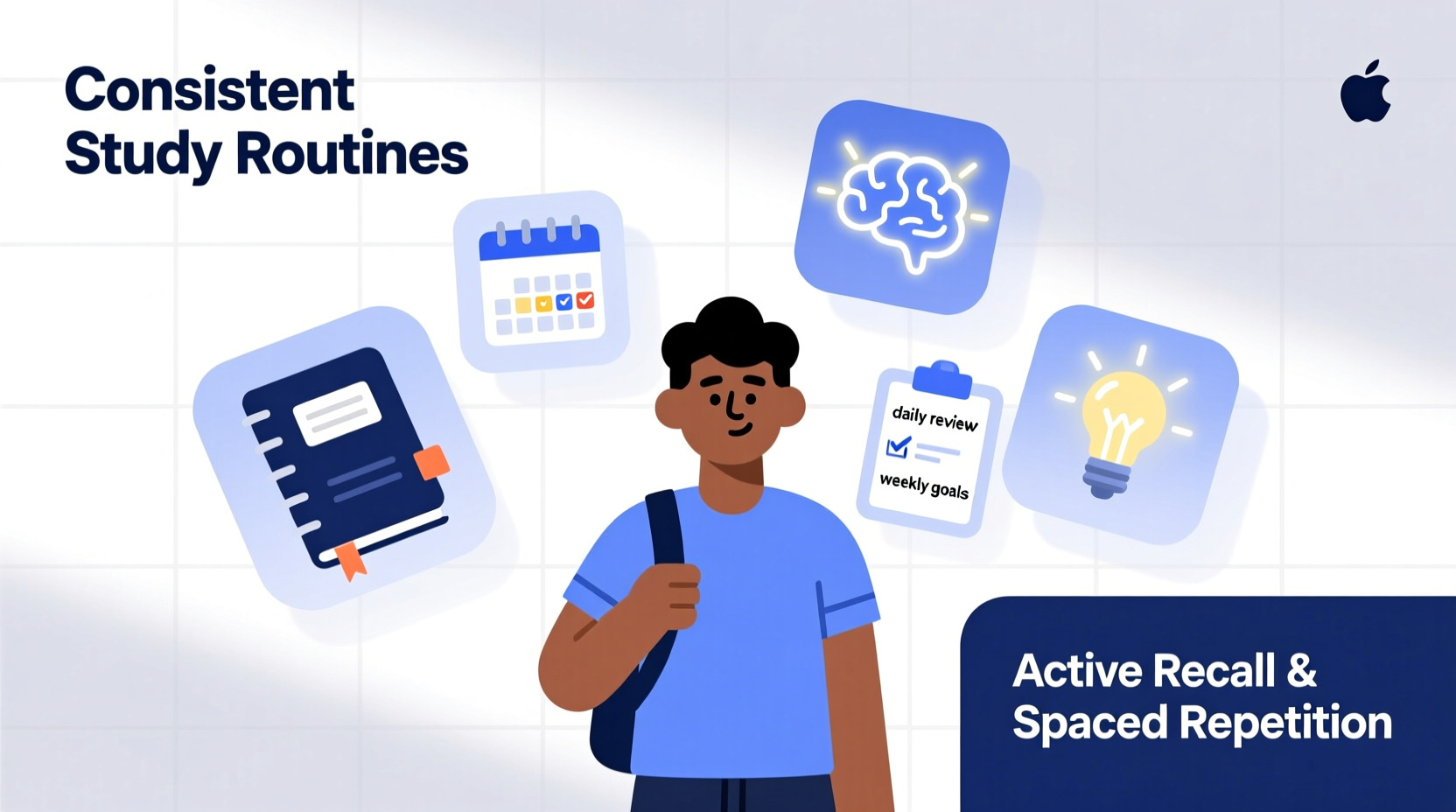Earning top grades isn’t about innate intelligence or last-minute cramming—it’s the result of disciplined habits, strategic planning, and a growth-oriented mindset. Students who consistently achieve academic excellence don’t rely on luck; they follow repeatable systems that maximize learning efficiency and retention. Whether you're in high school or university, these evidence-backed strategies will help you shift from average performance to consistent academic success.
1. Master Time Management with Purposeful Planning

Time is your most valuable academic resource. High-performing students don’t just work harder—they work smarter by structuring their time intentionally. Without a clear plan, even the most motivated students fall into reactive cycles of stress and procrastination.
Effective time management starts with breaking down large tasks into manageable chunks and assigning them to specific time blocks. Use a digital calendar or planner to map out lectures, study sessions, assignment deadlines, and review periods at least one week in advance. This reduces decision fatigue and ensures that studying becomes a habit, not a crisis response.
The Weekly Academic Blueprint
- Review all upcoming deadlines and exams every Sunday.
- Block out fixed commitments (classes, labs, meetings).
- Assign 60–90 minute focused study sessions for each subject.
- Include buffer time for unexpected delays or deeper dives.
- End each week with a 20-minute reflection: What worked? What needs adjustment?
2. Optimize Learning with Active Recall and Spaced Repetition
Passive reading and highlighting are among the least effective study methods. Research from cognitive psychology consistently shows that active engagement with material leads to stronger long-term retention.
Two of the most powerful techniques are active recall and spaced repetition. Active recall involves testing yourself without looking at notes—forcing your brain to retrieve information strengthens neural pathways. Spaced repetition schedules review sessions at increasing intervals, aligning with how memory naturally decays.
For example, after learning a new concept in biology, close your notebook and ask: “Can I explain mitosis from memory?” Then revisit the topic after one day, three days, and one week. Tools like Anki or Quizlet automate this process, making it easy to integrate into daily routines.
“Students who use retrieval practice score up to 50% higher on delayed tests than those who only re-read material.” — Dr. Henry Roediger, Cognitive Psychologist, Washington University
3. Build a High-Performance Study Environment
Your environment shapes your behavior more than willpower ever can. Top students minimize distractions and design spaces that signal focus and productivity.
A high-performance study zone includes: a clean desk, minimal digital interruptions (phone on silent and out of sight), good lighting, and access to necessary materials. Noise level matters too—some thrive in silence, while others benefit from low-fi music or white noise. Experiment to find what enhances your concentration.
| Factor | Do | Avoid |
|---|---|---|
| Digital Distractions | Use website blockers (e.g., Freedom, Cold Turkey) | Keeping social media apps open |
| Seating | Ergonomic chair with proper back support | Studying in bed or on a couch |
| Lighting | Natural light or warm-white LED | Dim or flickering lights |
| Noise | Use noise-canceling headphones if needed | Busy cafes or loud rooms |
4. Real Example: How Sarah Raised Her GPA from 3.2 to 3.9
Sarah, a sophomore majoring in psychology, struggled with inconsistent grades despite spending hours studying. She often reviewed notes passively and pulled all-nighters before exams. After meeting with an academic coach, she implemented three key changes:
- She replaced rereading with self-quizzing using flashcards.
- She began scheduling study blocks six days a week, limiting sessions to 90 minutes with breaks.
- She joined a weekly peer study group to teach concepts aloud—reinforcing her understanding.
Within one semester, Sarah’s exam scores improved by an average of 23%, and she earned As in three of her four courses. By her senior year, she graduated summa cum laude. Her transformation wasn’t due to increased talent, but better strategy.
5. Develop the Mindset of an Academic Achiever
Mindset plays a critical role in academic performance. Students who view intelligence as malleable—what psychologist Carol Dweck calls a \"growth mindset\"—are more resilient in the face of setbacks and more likely to seek feedback and persist through challenges.
Instead of thinking, “I’m not good at math,” reframe it as, “I haven’t mastered this concept yet.” This subtle shift fosters motivation and encourages problem-solving over self-doubt. Additionally, high achievers treat professors and teaching assistants as resources, not gatekeepers. They attend office hours regularly, ask thoughtful questions, and clarify misunderstandings early.
Academic Success Checklist
- Plan weekly schedule every Sunday
- Use active recall for at least 70% of study time
- Review material using spaced repetition (daily, then every few days)
- Study in a distraction-free environment
- Attend office hours at least once per course per month
- Form or join a study group for accountability and teaching practice
- Reflect on exam performance and adjust strategies accordingly
Frequently Asked Questions
How many hours should I study per week to earn an A?
A general rule is 2–3 hours of study for every hour spent in class. For a 15-credit semester, that means 30–45 hours of weekly study outside of lectures. However, quality matters more than quantity—focused, active studying for 2 hours beats unfocused reading for 5.
Is multitasking during study sessions effective?
No. Cognitive science shows that task-switching reduces comprehension and increases error rates. Your brain performs best in deep focus mode. Silence notifications and commit to single-tasking for optimal results.
What should I do if I fail a test despite studying hard?
First, normalize the experience—even top students face setbacks. Then, analyze what went wrong: Was your method passive? Did you start too late? Seek feedback from your instructor and revise your approach. Resilience defines long-term success more than any single grade.
Conclusion: Excellence Is a Practice, Not a Result
Consistently earning an A isn’t about perfection—it’s about consistency, strategy, and continuous improvement. The students who excel aren’t always the smartest; they’re the ones who apply proven methods daily, learn from mistakes, and refuse to accept mediocrity as the norm. You don’t need a genius IQ or endless free time. You need a system.
Start small: pick one strategy from this article—maybe active recall or weekly planning—and implement it rigorously for two weeks. Track your progress. Refine your approach. Build momentum. Over time, these practices compound into exceptional academic performance.









 浙公网安备
33010002000092号
浙公网安备
33010002000092号 浙B2-20120091-4
浙B2-20120091-4
Comments
No comments yet. Why don't you start the discussion?